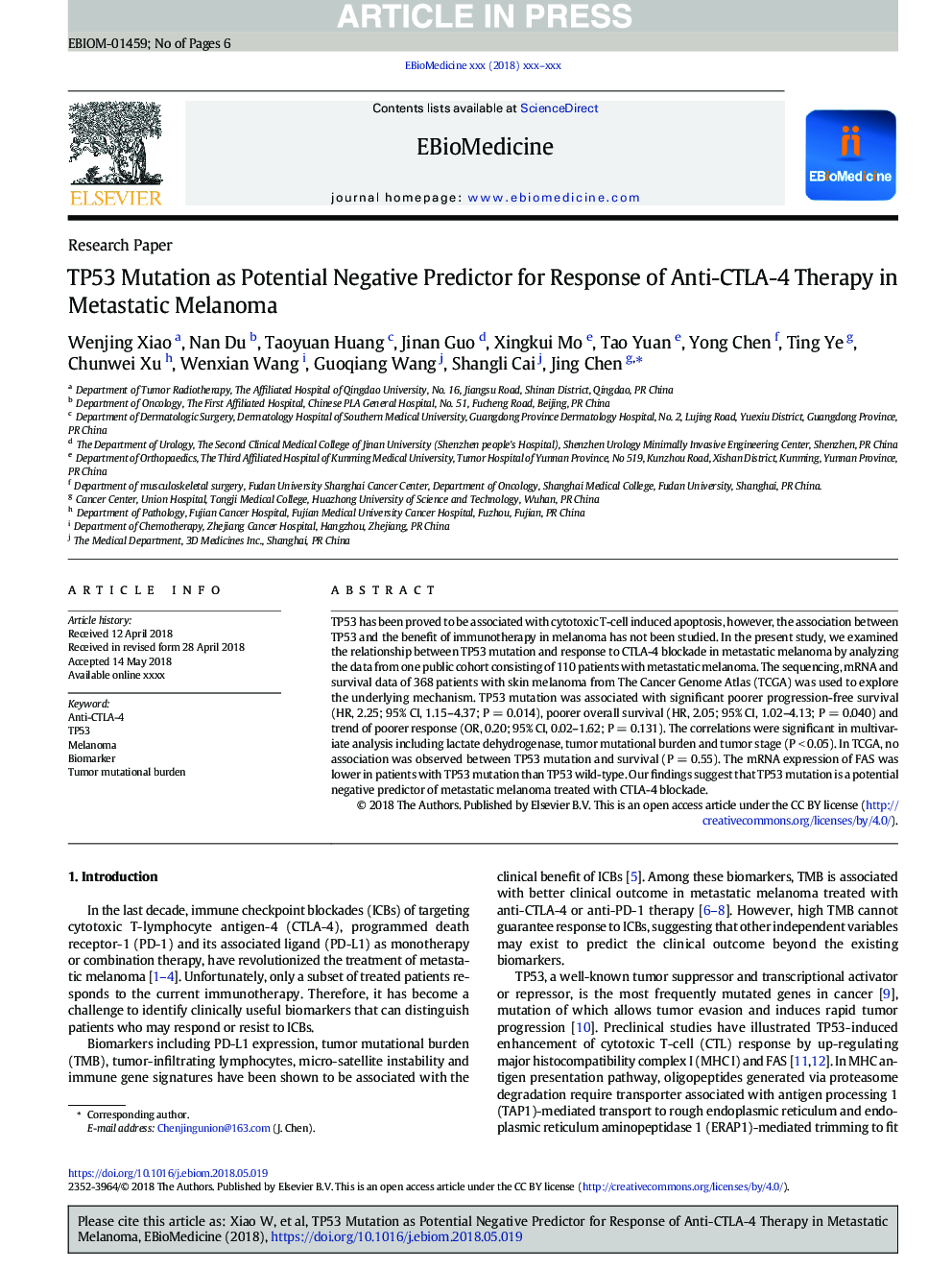| کد مقاله | کد نشریه | سال انتشار | مقاله انگلیسی | نسخه تمام متن |
|---|---|---|---|---|
| 8437117 | 1546867 | 2018 | 6 صفحه PDF | دانلود رایگان |
عنوان انگلیسی مقاله ISI
TP53 Mutation as Potential Negative Predictor for Response of Anti-CTLA-4 Therapy in Metastatic Melanoma
دانلود مقاله + سفارش ترجمه
دانلود مقاله ISI انگلیسی
رایگان برای ایرانیان
کلمات کلیدی
موضوعات مرتبط
علوم زیستی و بیوفناوری
بیوشیمی، ژنتیک و زیست شناسی مولکولی
تحقیقات سرطان
پیش نمایش صفحه اول مقاله

چکیده انگلیسی
TP53 has been proved to be associated with cytotoxic T-cell induced apoptosis, however, the association between TP53 and the benefit of immunotherapy in melanoma has not been studied. In the present study, we examined the relationship between TP53 mutation and response to CTLA-4 blockade in metastatic melanoma by analyzing the data from one public cohort consisting of 110 patients with metastatic melanoma. The sequencing, mRNA and survival data of 368 patients with skin melanoma from The Cancer Genome Atlas (TCGA) was used to explore the underlying mechanism. TP53 mutation was associated with significant poorer progression-free survival (HR, 2.25; 95% CI, 1.15-4.37; Pâ¯=â¯0.014), poorer overall survival (HR, 2.05; 95% CI, 1.02-4.13; Pâ¯=â¯0.040) and trend of poorer response (OR, 0.20; 95% CI, 0.02-1.62; Pâ¯=â¯0.131). The correlations were significant in multivariate analysis including lactate dehydrogenase, tumor mutational burden and tumor stage (Pâ¯<â¯0.05). In TCGA, no association was observed between TP53 mutation and survival (Pâ¯=â¯0.55). The mRNA expression of FAS was lower in patients with TP53 mutation than TP53 wild-type. Our findings suggest that TP53 mutation is a potential negative predictor of metastatic melanoma treated with CTLA-4 blockade.
ناشر
Database: Elsevier - ScienceDirect (ساینس دایرکت)
Journal: EBioMedicine - Volume 32, June 2018, Pages 119-124
Journal: EBioMedicine - Volume 32, June 2018, Pages 119-124
نویسندگان
Wenjing Xiao, Nan Du, Taoyuan Huang, Jinan Guo, Xingkui Mo, Tao Yuan, Yong Chen, Ting Ye, Chunwei Xu, Wenxian Wang, Guoqiang Wang, Shangli Cai, Jing Chen,